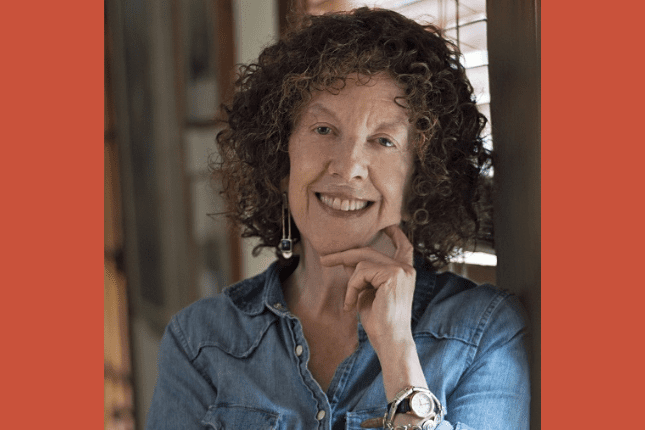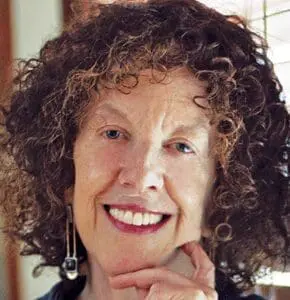Psychoanalyst Karen Horney’s questioning of Freud’s idea of penis envy was perhaps the first notable challenge by a woman to the veiled sexism embedded in psychotherapy’s conventional wisdom, and paved the way to other assaults on the impact of patriarchal cultural values within the profession. By the late ’70s and early ’80s, through the work of the Women’s Project in Family Therapy and other feminist contributors to the field, feminism had become a major force, shaping not only theory but clinical practice. These days, however, it’s hard to find much attention being paid to the idea that gender politics looms large in the issues that clients bring to our offices.
For 30 years, psychologist Harriet Lerner has been one of the leading feminist thinkers within the profession, as well as an enormously successful author who brings the insights of therapy to a large general audience. Her 10 books, including Women in Therapy, The Dance of Anger, and The Dance of Fear, have sold more than two million copies and been published in 35 foreign editions. She recently spoke about her body of work, and addressed the question of the continuing impact of feminism on psychotherapy today.
——————-
RH: How would you describe the core principles that define your work as a therapist?
LERNER: The thread that unites all my work is the desire to help people speak wisely and well with the most difficult people and in the most difficult circumstances. Communication is hard, even in ideal circumstances. When intense emotions get revved up, such as anger, anxiety, shame, or any form of emotional intensity, it’s harder still. People get stuck in patterns that cause them a lot of pain. That’s the underlying theme in each of my Dance books. My husband calls me the Ginger Rogers of the psychology world.
RH: So the therapist’s job is to help change the choreography of communication?
LERNER: Communication works best in a hypothetically perfect world, where we’re all free of anxiety, fear, and shame. In such a world, we’d all be kind to each other and we’d navigate relationships with clarity. The reality is that anxiety will always be with us, and life brings one thing after another. The older I get, the more humble I feel about avoiding the pitfalls in my own relationships, because when everything is calm in my life, it’s easy to see myself as a mature, highly evolved, clear-thinking, Zen Buddhist-like person, but when enough stress hits, I have the brain of a reptile. I’m interested in helping people understand the patterned ways they move in relationships under stress and find the courage to get self-focused so they can navigate their relationships differently.
RH: Therapy typically starts when clients come to see us in the middle of a crisis. As a practical matter, how do you see your role in that initial stage of therapy?
LERNER: Crisis often gets people into our offices—so in a certain sense, thank goodness for crisis, or the symptoms that motivate them for change. Because change is so difficult and so scary, even when we’re seeking it, the pain of the current situation often needs to be greater than the fear of change. The first step, for me, is to help clients calm down. People don’t think well in the midst of a tornado—when they’re drowning in emotions and can’t think about their feelings. Therapists must learn to be a calm, emotional presence in an anxious, emotional field.
RH: In your books, you identify guilt and shame as being at the heart of many of the dances that clients bring to therapists. Do you agree that guilt is feeling bad about what you’ve done, while shame is feeling bad about who you are?
LERNER: Exactly. Guilt is about doing, and shame is about being. Shame, in my opinion, is the most debilitating emotion. It’s the most devastating in its consequences, and it’s the most difficult to talk about. People are eager to discuss their fears and anxiety and what they’re mad about; I mean, this is dinner table conversation. But it’s a real conversation-stopper to invite people to share their deepest shame. If I had to define shame, I’d say that it’s the belief that if we bring our authentic selves into a relationship and allow ourselves to be truly seen, then we’d be seen for what we “truly” are—essentially flawed, or ridiculous, or someone to be pitied, or unworthy of being respected and loved, and just out of the flow of human experience.
RH: Why do we hear more about women’s shame than men’s?
LERNER: In my experience, women tend to internalize shame and even rehearse how ugly and stupid and inadequate they are in a way that’s not useful. I think men have less tolerance for shame, perhaps because they’re shamed for so many things. From the time they’re wrapped in a blue blanket, they’re shamed for any kind of weakness or vulnerability or whatever is seen as “feminine.”
I think it’s so intolerable for men that, in a nanosecond, they flip shame into something more tolerable—something more “manly,” like the need to dominate or control. These are generalizations, of course; there are so many exceptions to the rule.
Neither is a good way to handle shame. It’s not good to manage shame by sitting folded up in a dark corner, or by bombing an entire country. I think the challenge is really to help people get out in the sunlight and draw upon their courage to speak, and show up, even when they face the possibility of feeling shame. It’s not really shame that’s the culprit: it’s the way people avoid the possibility of feeling shame.
RH: You came into the field at a time when the Women’s Movement was gathering steam. What was the influence of feminism on your early work?
LERNER: I was in graduate school in New York in the ’60s, and the feminist movement was really gaining steam, but I was asleep or perhaps in a coma, and my only reaction was, “What does this have to do with me? I’m getting my Ph.D.; no one ever discriminated against me. If women want to get out of the kitchen, why don’t they get out of the kitchen?” I went from New York to Berkeley, which was at the heart of feminism in the early ’70s, and I still didn’t get it. When I moved to Topeka, Kansas, in 1972 and came to the Menninger Clinic, necessity became the mother of comprehension, and I really got feminism. Oddly enough, it was in the land of patriarchy where I woke up.
RH: I don’t hear much about feminist psychology in the field these days. If you agree with me, why do you think that is? Did feminism reach its goals?
LERNER: That’s really an interesting question. There was certainly a phenomenal energy back in the late ’70s and ’80s when The Women’s Project in Family Therapy, with Betty Carter, Peggy Papp, Olga Silverstein, and Marianne Walters, was so influential. As far as I know, the younger generation of therapists hasn’t paralleled that force, but we’ve certainly kept feminist principles operative in our work, since gender is a filter that shapes our clients’ sense of power, possibility, and place in the world. But one would have to be naive, to put it sweetly, to see the goals of feminism as having been accomplished. If you listen to any world report, violence against girls and women, and the erosion of the rights of women, is astounding worldwide. So I don’t think for a second that we’ve accomplished our goals.
RH: So why is there so little discussion of feminist issues these days?
LERNER: I’m trying to think of how to say this without putting forth a sense of pessimism. I think that this is a time in the world, politically speaking, where people are very polarized and, frankly, quite nuts. There’s an awareness of so many groups being oppressed, misunderstood, erased, and eradicated. I think sometimes we don’t know where to begin to focus the principles of feminism, which are all about diversity, and inclusion, and tolerance of differences, and people having a place at the table.
There was a sense with the Civil Rights Movement and the Women’s Movement that we could set things right, and there’d be a just world. I think there’s a realization now of just how deeply rooted the problems are. That said, feminism is alive and well in psychotherapy. Consider, for example, The Stone Center at Wellesley College, The Feminist Therapy Center in New York, and The Multicultural Family Institute in New Jersey, directed by Monica McGoldrick. Then there are psychologist–activists like Jeffrey Kottler, who’s set up a foundation to provide educational opportunities to girls in Nepal who’d otherwise be sold into sexual slavery, inspiring countless psychotherapy students to become activists. It’s just that the challenge of making a just world seems like a larger task today—which is no excuse for throwing up one’s hands.
RH: Given this tremendous need, how can psychology help create a more just world today?
LERNER: I’d answer that in one sentence: “Any way we can.”
Ryan Howes
Ryan Howes, Ph.D., ABPP is a Pasadena, California-based psychologist, musician, and author of the “Mental Health Journal for Men.” Learn more at ryanhowes.net.
Harriet Lerner
Harriet Lerner is one of the most respected voices on the psychology of women and marriage and family relationships. For more than three decades, she was a staff psychologist and psychotherapist at The Menninger Clinic in Topeka, Kansas, and a faculty member and supervisor in the Karl Menninger School of Psychiatry. Currently in private practice in Lawrence, Kansas, she is the author of numerous scholarly articles and 12 books, including the New York Times best-seller, The Dance of Anger, and Why Won’t You Apologize: Healing Big Betrayals and Everyday Hurts.














